EUROPARC’s General Assembly 2021 Recap
On the 5th of October, EUROPARC’s General Assembly took place online. This year, amongst other things, a new council was elected and members voted on the new EUROPARC Strategy.
A new EUROPARC Council
After 7 years of service, we said goodbye to Ignace Schops as EUROPARC President. He served two mandates, and as such was no longer eligible to serve as president. Additionally, the current EUROPARC Council was released of their duties, as, after 3 years, a new council has to be elected. Of course, even in an online setting we could not just let this moment go by quietly. Together we looked back on 7 years of dedication from our President and Council members:
However, it was now up to our membership to choose a new President and Council. There were 10 excellent candidates to choose from, but only 7 positions were available (including one for president). These are the newly elected EUROPARC Council and President:
Michael Hošek (CZ) – EUROPARC President
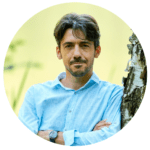
Michael Hošek
Michael Hošek has worked in the field of nature conservation for more than 20 years (for the Czech Nature Conservation Agency, Ministry of the Environment of the Czech Republic, private consultancy in natural resources use), and in the period 2014-2021 fulfilled the role of EUROPARC vice president. Currently, he is working as a project manager at the Krkonoše Mountains National Park. He also has a wealth of experience working for international nature conservation organizations. He was a member of the IUCN Council representing East Europe, North and Central Asia during the 2012 – 2016 and 2016-2021 periods. Additionally, he is a member of the IUCN World Commission on Protected Areas.
Leelo Kukk (EE) – EUROPARC Council

Leelo Kukk
Leelo is the Deputy Director General of the Estonian Environmental Board (Keskkonnaamet). She is a biologist with long-time experience in nature conservation on governmental, national and international level. She started her career in the field of fisheries and restoration of rivers and after that worked at an organisation responsible for governance and management of Protected Areas and species all over Estonia. Over all, she has over 25 years of working-experience. In her long career, she has been in contact with EUROPARC on many occasions, for example through the Europarc Nordic-Baltic Section, and the EUROPARC Junior Ranger Programme.
Dominique Lévêque (FR) – EUROPARC Council
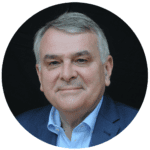
Dominique Leveque
Dominique has served on the EUROPARC Council before, from 2011 to 2017. Currently, he is president of the Parc Naturel Regional de la Montagne de Reims and Mayor of Ay-Champagne, which is located in the Regional Nature Park. Apart from his function as president, he is also currently the Treasurer of the French Federation of Nature Regional Parks. Here he served as Vice-President until 2020 and was in charge of European and International Affairs. Dominique was also a alternative member of the Committee of the Regions and is currently an alternative member to the Council of Europe.
Marta Múgica (ES) – EUROPARC Council
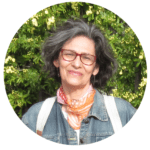
Marta Múgica
For many, Marta will not be a stranger: she has been involved with the Federation since 1995. During this time, she has had different roles: from involving EUROPARC’s Spanish members in the beginnings of the European Charter for Sustainable Tourism, participating actively in EUROPARC Conferences workshops and representing the EUROPARC Sections as a co-opted member of the EUROPARC Council. Marta has a PhD in Ecology and is the director of Fungobe. She has a strong interest in the connections between Nature and Humans and has experience in working with public administrations, networking, design, coordination and development of projects related to climate change adaption, ecological connections, social perception and environmental education.
Pete Rawcliffe (UK) – EUROPARC Council
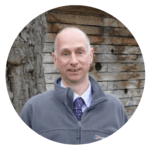
Pete Rawcliffe
Pete was already on the previous EUROPARC Council and also chairs our Healthy Parks Healthy People Commission. Additionally, he is a member of the IUCN specialist group on health and part of the current working group on COVID19 and Protected Areas. He has over 25 years of working experience and comes from a background of academic qualifications in the environmental and political sciences (BSc and PhD), consultancy work on planning, transport and conservation policy, and environmental education. Currently, he is the Head of People and Places for NatureScot – the national nature agency for Scotland (formerly known as Scottish Natural Heritage).
Stefano Santi (IT) – EUROPARC Council

Stefano Santi
Apart from being a newly elected council member, Stefano is also the current co-chair of the EUROPARC Transboundary Cooperation Task force. He was actively involved in this programme during his time as coordinator and director of the Prealpi Giulie / Julian Prealps Nature Park. He was dedicated to improving the cooperation between the the Park in Italy and the Triglav National Park in Slovenia, which resulted in them becoming a EUROPARC Transboundary Park in 2009. The Parks were also the first Transboundary area to become part of the European Charter for Sustainable Tourism. Apart from his cross-bordering work, Stefano is also a strong supporter of youth involvement and helped create the Youth Advisory Board at the Julian Prealps. He also actively worked on establishing sustainable agricultural practices in the park. Currently, Stefano represents the Association “Italian Network of the European Green Belt”.
Hendrik Oosterveld (NL) – EUROPARC Council
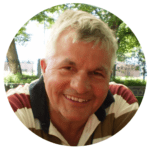
Hendrik Oosterveld
Hendrik has a wealth of experience with Parks and Protected Areas, both in his professional career, and as a volunteer. He has chaired different organisations, like the Dutch National Park Foundation, EUROPARC’s Low Countries Section & the EUROPARC Conference Netherlands 2021 Foundation (postponed to 2023). He worked for 38 years at the Ministry of Agriculture, Nature and Fisheries/Food Quality in the Netherlands. Here he achieved a breakthrough in establishing the urban-landscapes vision of the ministry and integrating it better within the wider society. Hendrik was active in a number of Protected Areas during his career. For his work in the Waddensea area he was awarded a Silver Medal of Honour, in particularly for the special efforts in acquiring the UNESCO World Heritage status for the area. Additionally, he was a driving force behind the designation of the Drentsche Aa National Park. Currently, he is the Chairman of the Area Charity Fund at National Park Drentsche Aa.
EUROPARC congratulates the newly elected council. A new internal auditor was also elected: Michael Jungmeier will take over from Roger de Freitas. Michael is the founder of E.C.O. In 2021 he successfully handed over the management, left the company and is now devoting himself entirely to his UNESCO chair ‘Sustainable Management of Conservation Areas’ (MCA) at the Carinthia University of Applied Sciences.
The new Council will now work on finding the right co-opted members (5 in total). Nikos Pangas of the Philodassiki Society in Athens will take on the role of Periurban representative. A decision is still to be made on the youth and sections representatives. More info will soon follow!
The council has already made a decision on a Treasurer: former EUROPARC treasurer Paolo Castro will continue this role for one more year.
A new EUROPARC Strategy
Another important development was voted upon during the General Assembly: the new EUROPARC Strategy to 2030. Our current strategy is coming to an end this year. This is why we started the process of developing a new strategy in 2020. Through meetings with our members, section representatives and a special survey, the so-called “Drafters” created a new and bold EUROPARC Strategy. The strategy contains four strategic goals:
- Strengthen and grow our network to deliver our vision.
- Strengthen the status of Protected Areas for a stronger, more sustainable nature.
- Enhance the status of nature on land and sea an people’s connection to it.
- Promote sustainable development tools and approaches for people and nature.
Each of the strategic goals is subdivided into themes, that each have multiple desired outcomes. We welcome you to have a look at the final product, available in English, French and German:
English – EUROPARC Strategy to 2030
French – EUROPARC Strategy to 2030
German – EUROPARC Strategy to 2030
Any other business…
Of course, the membership also voted on “regular” EUROPARC documents, like the financial report and the directorates report. Additionally, a small increase in membership fees was agreed upon by the membership. The minutes of the General Assembly are currently getting translated and will soon be uploaded to the members area of our website.
The EUROPARC Directorate is looking forward to this new chapter and we will continue working on our vision: Sustainable Nature, Valued by People.